Panelists
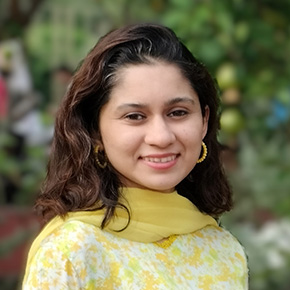 Maria Qazi
Maria QaziModerator Economist, Poverty & Equity Global Practice, World Bank
Maria Qazi is an Economist with the World Bank’s Poverty and Equity Global Practice. With a decade of experience in evidence-based policy design, she specializes in welfare measurement, distributional analysis, jobs—particularly women’s economic empowerment—and impact evaluation. She has led the design and implementation of large-scale surveys targeting hard-to-reach groups, such as Afghan refugees, home-based workers, and women in conservative settings, demonstrating how informed survey design can better capture women’s economic contributions. Her portfolio includes official poverty estimation for Pakistan, COVID-19 impact monitoring, defining the middle class, developing a new metric for housing affordability, and technical capacity building for policy makers. She holds a Masters in Public Administration in International Development (MPA/ID) from Harvard University and a Bachelor of Science (Honors) in Economics from Lahore University of Management Sciences.
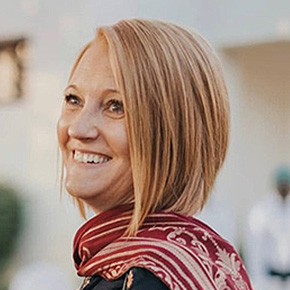 Christina Wieser
Christina WieserPanelist Senior Economist, Poverty & Equity Global Practice, World Bank
Christina Wieser is a Senior Economist with the World Bank’s Poverty and Equity Global Practice, currently based in Pakistan. Her work centers on economic mobility, welfare measurement, and distributional analysis, with a strong emphasis on high-quality data collection to inform evidence-based policymaking. Christina has worked across South Asia, the Middle East and North Africa, and East and West Africa. She currently focuses on poverty, jobs, and displacement in Pakistan and Bangladesh. Her previous assignments include Ethiopia, where she analyzed the impacts of COVID-19, conflict, and economic reforms, and Afghanistan, where she studied labor market dynamics, youth and women’s inclusion, and reintegration of displaced populations. Before joining the World Bank in 2014, Christina was an Economist at the International Labour Organization and a Management Consultant in the private sector. She holds an MSc in Economics from the Vienna University of Economics and Business and an MBA from the University of Memphis.
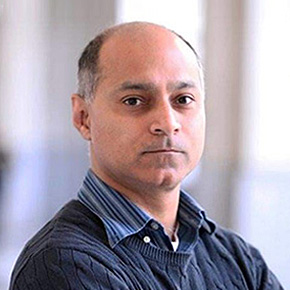 Khurram Hussain
Khurram HussainPanelist Business and Economy Journalist
Khurram Husain is a leading business and economy journalist in Pakistan, based out of Karachi. He has taught at the prestigious Lahore University of Management Sciences in the past. He writes a widely read column in Dawn, Pakistan’s leading English language newspaper, and has been a television contributor to the BBC, providing short features on economic issues as well as appearing as an analyst for English and Urdu language services. His work focuses on the political economy of policy reform in Pakistan, and he has been a scholar at the Woodrow Wilson Center, where he researched Pakistan’s relationship with the IMF.
 Asad Sayeed
Asad SayeedPanelist Director, Collective for Social Science Research
Asad Sayeed is an economist and researcher whose focus is political economy. He has been associated with several social and economic policy research and development think tanks. He is currently Director at the Collective for Social Science Research, Karachi, and an independent member on the 9th National Finance Commission from Sindh. Sayeed has researched institutional and political economy issues in the areas of labour markets, corruption, industrial policy, gender, health, social protection, conflict, and corruption in Pakistan and Thailand.
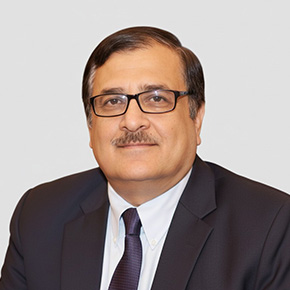 Wasif Ali Memon
Wasif Ali Memon Panelist Chairman, Sindh Revenue Board
Dr. Wasif Ali Memon, Chairman Sindh Revenue Board, is a seasoned taxman. He started his career as Assistant Collector in Pakistan Customs, FBR, and rose to the top position within FBR. He has served as Chief Collector of Pakistan Customs, Member Risk Management Committee, Head of committee on Authorized Economic Operator, Transport Internationaux Routiers and Export Facilitation Schemes. He has also supervised Audit functions in FBR as well as monitored and supervised the management parameters of WEBOC clearance across Pakistan. Before becoming Chairman SRB, He has also previously served as a Senior Member at SRB.
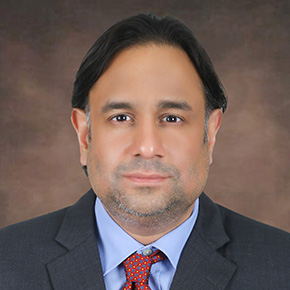 Aadil Nakhoda
Aadil Nakhoda Moderator Assistant Professor, IBA Karachi
Dr. Aadil Nakhoda is an accomplished expert in international trade. He brings over a decade of experience in teaching, researching, and consulting to the table. His extensive contributions to the field include authoring research articles featured in renowned international and local journals, as well as UNCTAD, United Nations ESCAP and PIDE publications. Dr. Nakhoda's influence transcends academia with regular appearances in newspapers and podcasts discussing critical trade-related issues. His instrumental role in developing the Business Confidence Index in partnership with the State Bank of Pakistan and IBA, Karachi is noteworthy. He received the Zahid Hussain Memorial Fellowship in 2013. He is also a member of the Economic Advisory Group. He continues to shape future leaders through his expertise as a faculty member at IBA, Karachi since 2014. He received his PhD in International Economics from UC Santa Cruz.
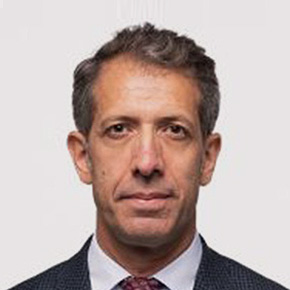 Mahir Binici
Mahir Binici Panelist Resident Representative for Pakistan, International Monetary Fund
Mahir Binici is the Resident Representative for Pakistan at the International Monetary Fund (IMF), appointed in December 2024. Before joining the IMF, he worked at the European Central Bank and the Central Bank of Türkiye. He holds a Ph.D. in International Economics from the University of California, Santa Cruz
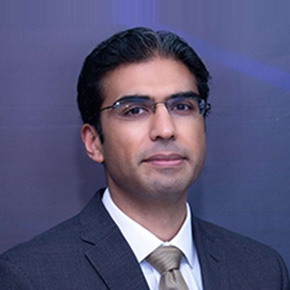 VaqarAhmed
VaqarAhmed Panelist Public Finance Economist and Team Lead, Oxford Policy Management
Vaqar Ahmed is an award-winning economist, former civil servant, and policy expert with a distinguished career spanning both the public and private sectors. His areas of expertise include public finance, tax and trade reforms, local governance, and enhancing private sector competitiveness. He has successfully led programmes for prominent organizations, including the World Bank, United Nations Development Programme (UNDP), and the Asian Development Bank (ADB). He serves as an advisory board member for The Economist, is a Research Fellow with the Partnership for Economic Policy (PEP) Network Canada, and acts as a Research and Evaluations Reviewer at RAND. He is also the Team Leader for the FCDO-supported AAWAZ-II Programme. In addition to his roles in international organizations and government, he collaborates with various policy research think tanks, including the Sustainable Development Policy Institute (SDPI) and Southern Voice. He has also been a visiting faculty member at esteemed institutions such as the University of Nottingham (UK), National University of Ireland, University of LeHavre (France), Quaid-e-Azam University, Pakistan Institute of Development Economics, Pakistan Institute of Trade and Investment, National Institute of Management, National University of Sciences & Technology (NUST), and the National Defense University in Islamabad. His contributions to the field have been recognised through awards such as the 2015 Fellowship from the French Ministry of Foreign Affairs and a 2021 research grant from the Canadian Government for fiscal responses to COVID-19. He has published over 200 articles and several influential books, including Pakistan’s Agenda for Economic Reforms and Economy, Welfare, and Reforms in Pakistan, both published by Oxford University Press. His work has also been featured in edited volumes such as Global Pakistan: Pakistan’s Role in the International System, published by FES Germany. Dr. Ahmed frequently shares his insights on economic issues across media platforms, including the BBC, Reuters, Bloomberg, Arab News, Nikkei Asia and Dubai Eye. Additionally, he has held key positions within the Pakistani government, including roles in the Ministry of Finance, Commerce, and the Planning Commission, where he has contributed to economic policy formulation and implementation. His expertise has been instrumental in developing growth and sustainability policies for provincial governments under the Sub-National Governance (SNG) programme. He actively contributes to Pakistan's national task forces, including the Resource and Revenue Mobilization Commission at the Federal Board of Revenue (FBR).
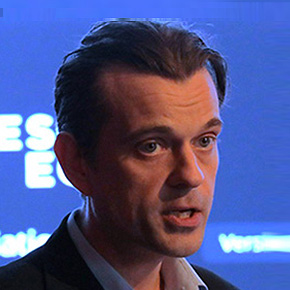 Alexey Kravchenko
Alexey Kravchenko Panelist Economic Affairs Officer at United Nations Economic and Social Commission for Asia and the Pacific
Alexey Kravchenko, is an Economic Affairs Officer at Trade Policy and Facilitation Section of Trade, Investment and Innovation Division at the United Nations Economic and Social Commission of Asia and the Pacific. His focus of work revolves around applied research in trade policy and trade data analysis, as well as training of government officials in the areas of trade policy analysis and trade data analysis. Alexey holds a PhD in Economics from University of Waikato (New Zealand). Prior to joining ESCAP Alexey ran an economics consultancy in New Zealand developing and conducting non-market valuation surveys for central and regional government agencies. He also taught economics in Shanghai, China, as part of a joint program with University of Waikato and taught various economics papers during his post-graduate studies in at the Waikato University. He speaks English, Russian, Chinese and Thai (and making strides in French and Spanish).
 Farzana Noshab
Farzana NoshabPanelist Lead Economist, Asian Development Bank
Farzana Noshab is Lead Economist, Pakistan Resident Mission, Asian Development Bank. She contributes to ADB operations by designing and implementing public sector management loans, conducting economic policy and project analysis. Her work involves engaging in policy dialogue with the government and various stakeholders, including development partners, focused on macroeconomic development as well as public sector management, specifically public sector enterprises, trade and competitiveness, and economic and energy corridors. Ms Farzana holds a Master’s degree in Development Economics from the University of Manchester.
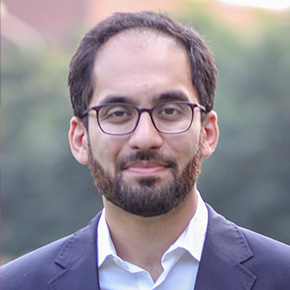 Ali Hasanain
Ali Hasanain Panelist Associate Professor, Lahore University of Management Sciences
Dr. Ali Hasanain is an Associate Professor at the Lahore University of Management Sciences (LUMS). He served as the Head of Department from 2019 to 2022. His research focuses primarily on how public service delivery can be improved through reform initiatives, particularly through technological progress and improvements in the media. He also studies how information and communication technologies (ICT) can improve market functioning. His research has been featured in The Guardian, Economist, Huffington Post, various World Bank blogs, VoxEU, VoxDev, Herald, Friday Times, Dawn, and other media outlets, as well as been the topic of the feature story of the World Bank’s global website. He is a member of Evidence in Governance and Politics (EGAP), a Senior Research Fellow at the Mahbub ul Haq Research Center, a member of the research board of PRIME Institute, a Fellow of the Consortium of Development Policy Research (CDPR), and a faculty advisor at the Technology for People Initiative (TPI). From 2014 to 2016, he was a Global Leaders Fellow at Oxford and Princeton universities. He previously directed the LUMS engagement on the World Bank's Pakistan At One Hundred Initiative, which sought to support greater debate and study Pakistan's medium term future, out to the year 2047. He has also previously been a member of the Punjab Government's Economic Advisory Committee. With his colleagues, he designed and implemented an ICT-based monitoring pilot in partnership with the provincial government of Punjab in 2011. The government adopted the intervention and scaled it up province-wide, and it is still in daily use. He also served as South Asia Team Leader for a Global Development Network (GDN) policy research project during 2011-2012. At LUMS, he teaches courses on the economics of the media, corruption, markets, and the law. He is also the Pakistan country coordinator (and one-time participant) of the South Asian Economics Students Meet. He received his PhD from George Mason University in 2010.
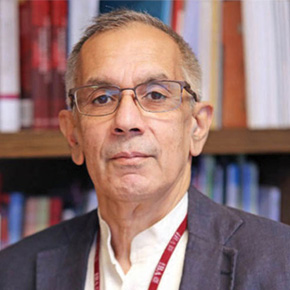 S Akbar Zaidi
S Akbar Zaidi Moderator Executive Director, IBA Karachi
Dr. S Akbar Zaidi is a renowned academic and political economist with over 35 years of teaching and research experience in Pakistan and abroad. He has served as a faculty member in renowned institutions across the globe, including Columbia University, Johns Hopkins, IBA, Karachi and the University of Karachi. He is a political economist with interests in political economy, development, the social sciences more generally, and increasingly, history. He has written over 75 academic articles in international journals and as chapters in books. Amongst his books, are: Military, Civil Society and Democratization in Pakistan (2011), The New Development Paradigm: Papers on Institutions, NGOs, Gender and Local Government (1999), and Pakistan's Economic and Social Development: The Domestic, Regional and Global Context (2004). His recent books include Issues in Pakistan's Economy: A Political Economy Perspective published by Oxford University Press in 2015, and a co-edited volume entitled New Perspectives on Pakistan's Political Economy: State, Class and Social Change, published by Cambridge University Press in April 2019. He holds PhD and MPhil degrees in History and Economics from University of Cambridge, an MSc in Social Planning in Developing Countries from the London School of Economics and Political Science, and a BSc in Economics from University College London. He is the 10th head of the Institution replacing Dr. Farrukh Iqbal, who served the Institute for more than 3 years.
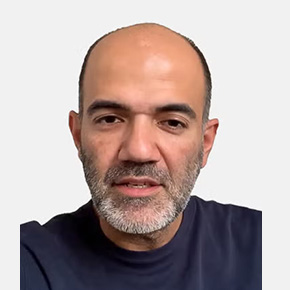 Aasim Sajjad Akhtar
Aasim Sajjad Akhtar Panelist Associate Professor, Quaid-e-Azam University
Aasim Sajjad Akhtar is Professor of Political Economy at the National Institute of Pakistan Studies, Quaid-i-Azam University. He was previously at the Lahore University of Management Sciences (LUMS). ASA works on diverse subjects such as Marxist theory, informality & class formation, colonial history, and working class movements. He has published widely in journals such as Third World Quarterly, Journal of Contemporary Asia, Journal of Peasant Studies and Critical Asian Studies. He is also the author of four books, most recently The Struggle for Hegemony in Pakistan: Fear, Desire and Revolutionary Horizons (Pluto, 2022) & The Politics of Common Sense: State, Society and Culture in Pakistan (Cambridge, 2018). He also writes a syndicated column for Pakistans newspaper, DAWN. He is contributing editor for the New York-based journal Socialism & Democracy, and Honorary Fellow at the Institute of South Asian Studies, National University of Singapore. He has been a visiting fellow at the University of Oxford, King’s College London & the School of Oriental and African Studies. Alongside his academic pursuits, he has also been closely affiliated with political and social movements in Pakistan for almost three decades and is currently deputy secretary general of the Awami Workers Party. He obtained his doctorate in political sociology from the School of Oriental and African Studies, University of London; an MA degree in Economics from Yale University and a BA degree in Economics from Northwestern University.
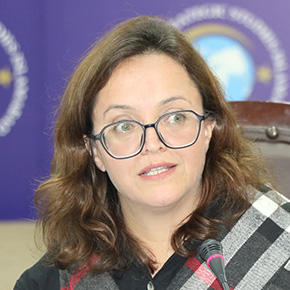 Neelum Nigar
Neelum Nigar Panelist Director Institute of Strategic Studies
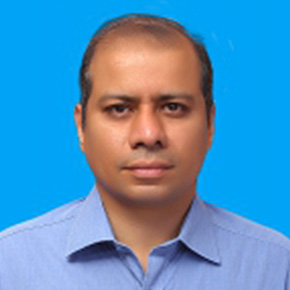 Farhan Siddiqi
Farhan Siddiqi Panelist Professor, IBA Karachi
Farhan Hanif Siddiqi is Professor in the Department of Social Sciences and Liberal Arts at the Institute of Business Administration (IBA), Karachi. Previously, he was based at the School of Politics and International Relations, Quaid-i-Azam University, Islamabad and the Department of International Relations, University of Karachi. His research interests border on ethnic conflict, identity politics, conflict analysis/resolution, theories of International Relations and strategic dynamics in South Asia. He has co-authored a textbook, Introducing International Relations: Concepts, Theories, and Practices (Oxford University Press, 2023) and is also the author of The Politics of Ethnicity in Pakistan: The Baloch, Sindhi and Mohajir Ethnic Movements (Routledge, 2012). He is a core member of the Global Scholars Network on Identity and Conflict (GSNIC), Harvard University. He was a Visiting Scholar at the Weatherhead Centre for International Affairs, Harvard University and Visiting Fellow with the South Asia Program at The Henry L. Stimson Center, Washington DC. He has been awarded prestigious research grants from the United States Institute of Peace (USIP) and Pakistan and Higher Education Commission (HEC).
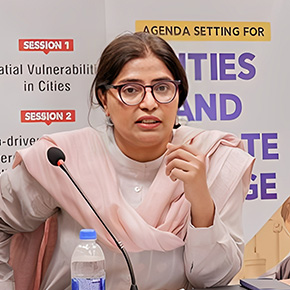 Lubna Naz
Lubna Naz Panelist Professor and Director CBER, IBA Karachi
Dr. Lubna Naz, a PhD economist, specializes in development and health economics, climate change, and gender equality. She serves as Director of the Centre for Business and Economic Research (CBER) and Professor at the School of Economics and Social Sciences (SESS), IBA Karachi. With over 20 years of experience, she has led research on health, education, labor markets, socio-economic development, and climate resilience. She has led/co-led projects funded by the SANDEE-ICIMOD, Wellcome Trust, GIZ, Oxfam, and UN agencies, securing over €200000 in research grants for IBA. Her work is widely published in top-notch international journals, and she frequently writes on education, health, and gender for national newspapers. As an advocate of capacity-building, she has trained hundreds of early-career researchers, faculty members, and public officials in quantitative methods, proposal writing, and data visualization. She has supervised numerous undergraduate and graduate theses and actively contributes to academic and policy forums.
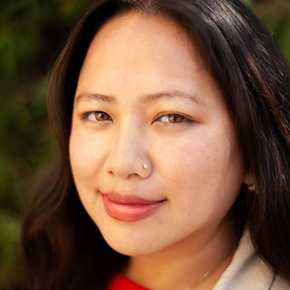 Shikha Thapa Magar
Shikha Thapa MagarPanelist Executive Director, Nepal Development Research Institute
Shikha Thapa Magar, a distinguished expert in Sustainable Agriculture from Nepal, serves as the Executive Director at NDRI. Holding a Ph.D. in Agronomy from Hebei Agricultural University, her expertise spans farming systems, climate-smart agriculture, value chain analysis, disaster risk management, and post-harvest solutions. Her commitment to gender-responsive climate action is evident in her role as Team Lead for the UN Women project “Research on Climate-Smart Technologies to Reduce Women’s Time Poverty and Work Drudgery in Nepal”. As Team Lead and Sustainable Agriculture/NRM Expert, she spearheaded the Climate-Resilient Farming Plan and Comprehensive Value Chain Assessments under ICIMOD’s UNDP-funded RERAS initiative. Academically, she serves as an Adjunct Assistant Professor at HICAST, teaching Sustainable Agriculture, and lends her expertise as a peer reviewer for journals such as Agricultural Systems, Environmental Challenges, and Scientific African.
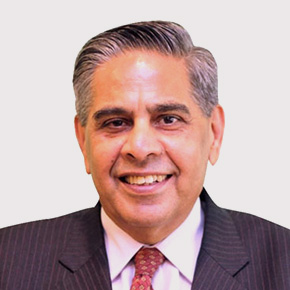 Ali Tauqeer Sheikh
Ali Tauqeer SheikhPanelist Board Member, Fund for Responding to Loss and Damage (FRLD). Independent Expert on Sustainable Development and Climate Change.
Ali Tauqeer Sheikh is the country’s foremost expert on climate change and sustainable development. He has contributed to the development of climate policies in Pakistan and several other countries in Asia. He is the principal author of several national policies, including the Nationally Determined Contributions, committing Pakistan’s climate actions to the global community. He is also the author of Pakistan’s National Climate Finance Strategy, which sets the direction for Pakistan on how to access climate finances for climate-resilient and low-carbon development. He serves on several national and international committees and boards, including the international board of the Loss and Damage Fund. He writes a regular column for Daily Dawn on issues of climate vulnerability and governance.
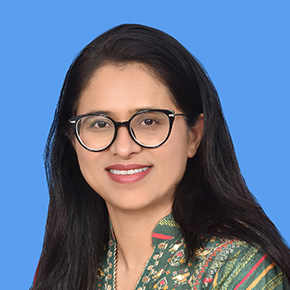 Saima Bashir
Saima BashirPanelist Senior Research Demographer, Pakistan Institute of Development Economics
Saima Bashir is a leading demographer and public policy specialist with more than two decades of experience in health and demographic issues. She is currently serving as Senior Research Demographer at PIDE. Earlier, she has served as Member Social Sector & Devolution at MOPD&SI, Pakistan. In this role, she has actively spearheaded policy research and identification of strategic areas for public investment and development of short to long term development plans in key areas of social sector such as health, education, population, social welfare, gender and women empowerment, youth and SDGs. She also served as Manager Research at Population Council. She received her Ph.D in Sociology from Bowling Green State University, Ohio, USA in 2017. Trained as family demographer and sociologist, Dr. Bashir studies family formation behaviors in Pakistan. Recent and current line of research examines the linkages between climate change, Population, Health and vulnerability. Her research work provides evidence-based perspective on how population dynamics can inform climate change responses, including both mitigation and adaptation. In all her research, she pays close attention to gender and socioeconomic differentials to better understand the issue at hand.
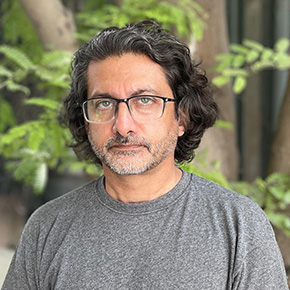 Yasir Hussain
Yasir Hussain Panelist Director, Climate Action Center
Yasir is the founder and Director of the Climate Action Centre CAC in Karachi. He is an artist, activist, and a multidisciplinary observer of climate phenomena in urban Karachi, Sindh, and beyond. Under his leadership, CAC is engaged in energy, EVs, environmental law, public climate narratives, advocacy and policy, industry, community organizing, culture, technology, and climate humanities.
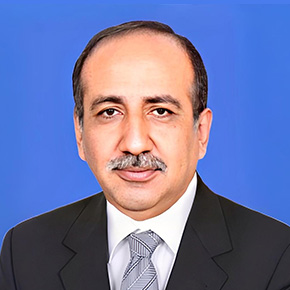 Fateh M. Marri
Fateh M. Marri Panelist Vice Chancellor, Sindh University
Dr. Fateh Marri, having PhD in agricultural economics, is an academician and researcher, agricultural economist, planning, development and management professional. He is currently serving as Vice Chancellor of Sindh University. He is a fellow of South Asian Network for Development and Environmental Economics, USA and Green Economic Institute, Oxford University, United Kingdom. He has lectured in various national as well as international seminars including prestigious institutions of world like Harvard University, Boston, USA and Oxford University, United Kingdom mostly on natural resources economics and water management in Pakistan. He is a former Vice Chancellor Sindh Agriculture University.

